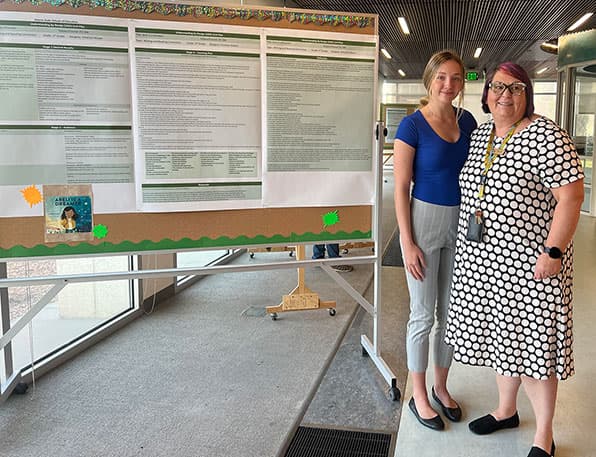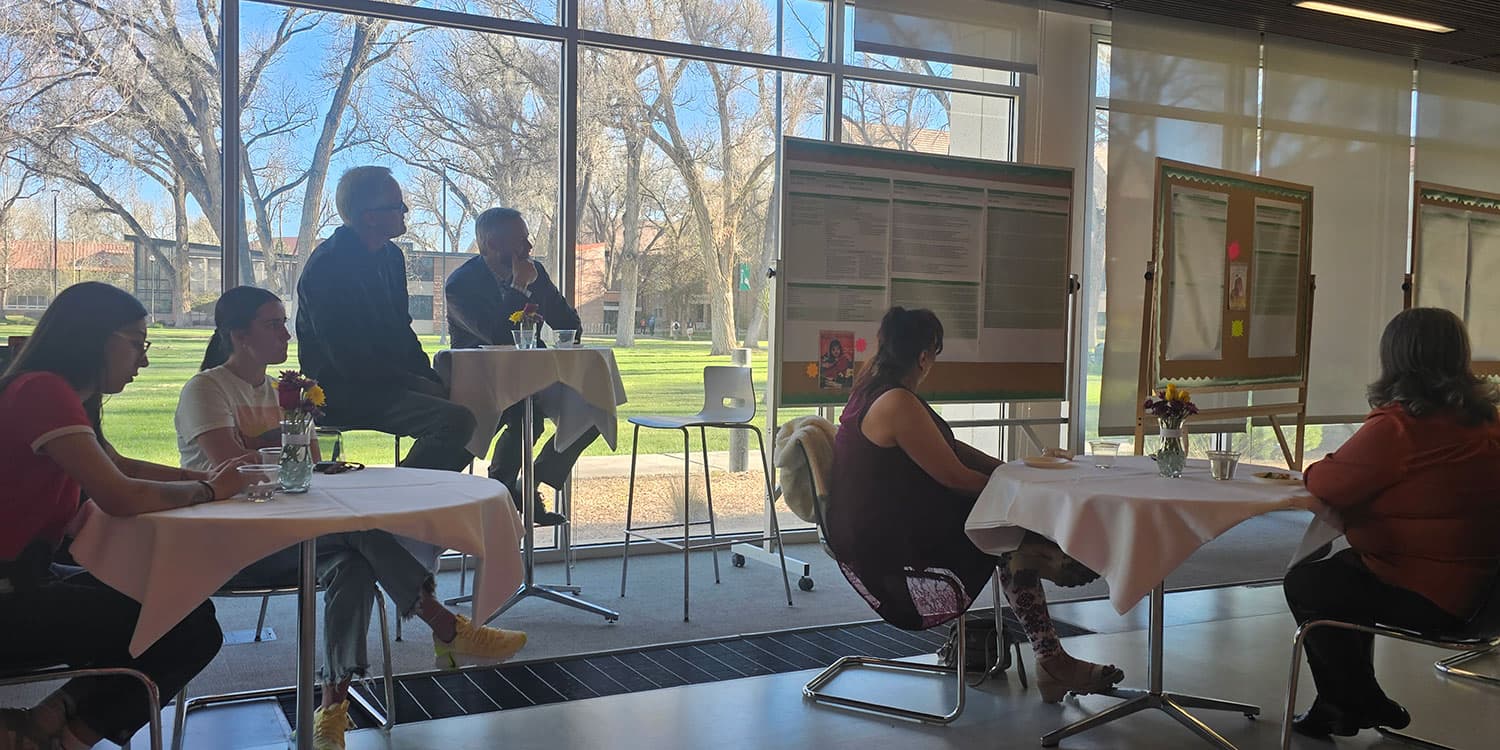Article by Julie Waechter, special assignment for Adams State
As part of Adams State University’s 2023 celebration of 25 years as a federally designated Hispanic-Serving Institution (HSI), teacher education students developed lesson plans to “decolonize the curriculum.” The project was a collaboration between Adams State’s School of Education and Title V, which administers the HSI grants.
“The intent is to address and challenge colonial perspectives, biases, and power structures in education,” according to Andréa Benton-Maestas, Title V PPHOA Activities Director.
Anna Torello, Project Director of Title V’s Cornerstone to Capstone program, detailed the approach, “Decolonization calls for the respect of others’ histories, lived experiences, voices, cultures, and perspectives. It also requires students to critically think about the issues of power, including the ways that hierarchical assumptions and inequalities rooted in gender, class, race, ethnicity, and other variables influence classroom dynamics.”

Project participants included nine undergraduates in Reading & Writing Connection, taught by Dr. Justine Schwarz, assistant professor of teacher education, as well as eight graduate students in Multicultural Perspectives, taught by Dr. Kimba Rael. Rael, an Adams State alumna and the 2016 San Luis Valley Educator of the Year, is the Pre-K–12 Principal in Centennial School District R1 in San Luis.
Students chose works by Latinx authors, then built lesson plans for grades K-12 for their student teaching and reflected on how the process impacted their learning. Books used in the project included Dreamers by Yuvi Morales, Areli is a Dreamer by Areli Morales, A Gift from Abuela by Ceclia Ruiz, Across the Bay by Carlos Aponte, River of Mariposas by Mirelle Ortega, The Princess and the Warrior by Duncan Tonatiuh, and The Devil’s Highway: A True Story by Luis Alberto Urrea.
“Embracing diversity is more than just creating a classroom library of culturally diverse books. This project turned literature into a window to explore another culture,” Schwarz noted.
Describing the lesson plan she created, undergraduate Asia Caldon said, “This lesson plan supports an inclusive environment for discussion, cross-cultural understanding, and empathy among students. The extension assignment allows students to incorporate their own cultural backgrounds and experiences into their creative work.”
Schwarz added, “Culturally responsive classrooms not only improve academic outcomes, but also foster greater interest in learning, higher motivation, and increased confidence. Learning about one’s cultural background is linked to positive racial and ethnic identities, enriching the educational experience for all.”
The School of Education plans to display the lesson plans for other students who may potentially incorporate them into their curriculum/lesson planning. Plans also include a group podcast/reflection on the project by participating students. The work will be showcased for HSI Week in September, Benton-Maestas added.



